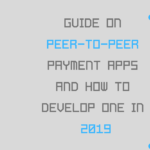As our world becomes more depended on the internet and fast-paced technology, the risks of cybercrimes and online fraud remain ever prevalent. More than ever, online scammers are finding more sophisticated ways to defraud online users. They reach into their personal lives and attempt to find vulnerabilities in their systems. From identity theft to credit card fraud to e-mail scams, fraudsters have plenty of techniques up their sleeves to gain their purpose. For the most part, fraudsters’ objective is to gain financial benefits, one way or another. The age group most prone to fraud are millennials, and they end up losing money in fraud cases. Therefore to counter fraud, people need to be aware of some of the most serious online scams that affect peoples’ lives in the most drastic way.
Phishing Scams
Perhaps the oldest online scam that still works is the Phishing e-mail scam. It is at least as old as the invention of e-mail is. Nearly one-third of all online frauds start with a phishing scam. The fact that this has been so prevalent is because they tend to evolve from time to time. Phishing scams primarily comprise of e-mails sent to online users for the purpose of enticing them into providing their personal details. These personal detail can include anything from account details to social security numbers and even passwords.
Often phishing e-mails will use the techniques of social engineering. In that, they will be made to look like they come from an official source like your bank or even a government agency. They will convince the reader into clicking on a malicious link that can compromise their computer with a virus thus making their personal details vulnerable. Or worse they may end up convincing the receiver into providing their personal details like account numbers, passwords and PIN numbers etc. Once they get all the details they require, scammers end up selling them on the dark web or using it for their own benefit.
Economic Scams
Such scams are designed to lure online users into making easy money from online jobs. You yourself would have seen multiple ads on less secure websites that entice you to make fast and easy money online. Most people have enough good sense not to click on such ads. But for someone merely curious or worse suffering from a critical financial situation due to unemployment or other reasons. These scams also use the offer of work-at-home jobs to attract people looking to make extra cash. Thus the offer of easy money by sitting at home lures online users into getting mixed in serious online frauds.
Facebook/ Profile Hijacking Scams
To date, Facebook remains the most widespread social media network. People use it frequently to stay in touch with their friends, families and colleagues. But over the years it has been used by fraudsters to scam users by hijacking their accounts. Criminals who hijack a user’s social media profiles to gain access to their friends and family and, most importantly your personal details.
Often our bank accounts have layered security and require some personal details (for security questions etc.) to gain access. Social media accounts can often provide cybercriminals with just the right amount of information to compromise a user’s bank account. Apart from that account hijacking can also be used to con the user’s friends list and send the malicious links to click on.
Travel Offer Scams
This type of scam takes the shape of a regular phishing scam. People will often receive offers in their e-mails for vacationing trips to an exotic destination. Such offers are usually too good to be true, offering peculiarly good discounts and a reduction of fees. Later on, when you’ve already paid for the offer, you will get to know about hidden costs and taxes and would have no option but to pay them as well. In such cases, it is always wiser to go with reputable and secure travel agencies and websites. Most e-mail offers tend to be a scam and should be avoided at all costs.
Bank Loans and Credit Card Frauds
The offer of a bank loan or a credit card is also often used to lure people into paying large amounts of ‘processing fee’ for such offers. All such schemes claim to be approved by your bank and offer their users low premiums on loans and credit cards. What a person should do in this situation is to check with the bank personally by calling them. Banks never offer credit card schemes and loan offers without evaluating an individual’s financial position. Some indicating factors of such fraud cases include the fact that they generally ask for a downpayment or upfront payment on the loan. They also tend to have no online contact information and the business is generally non-existent on the web. The lender also uses generic e-mail addresses that are not tied to the bank. Keeping a lookout for such warning signs can save people from a lot of trouble of falling for such schemes.
While online scams can seem scary and intimidating at times, it is completely possible to avoid them altogether. Identity theft and credit card fraud scams can be easy enough to see. More than that, businesses and online users can both take certain preventive measures to keep all sorts of fraudulent activity at bay;
- Keep Personal Information Secure – Whatever you do, it always remains a question of how safe your personal details are. Therefore, it is absolutely crucial for you to protect your personal information. Never share your personal information (passwords, account number, ID card numbers) over the phone, e-mail or DMs. Avoid sharing too many personal details on your social media accounts.
- Always Type Links in Browsers – Never click on links provided in emails, personal messages or text messages. Make sure you type the URL into your web browser’s search bar. Always access your bank account’s website by typing it into the search bat as well.
- Watch Your Bank Accounts Closely – always keep a close eye on your bank and credit card statements. It is best to implement some sort of credit monitoring on your accounts. Make sure to inform your bank in case you see a suspicious transaction on your credit card.
Keep Yout Social Media Accounts Secure – Never accept friend requests from people you don’t know. Use safe internet connections to log in to your accounts and never give out personal details and credentials to friends or family through DMs.








